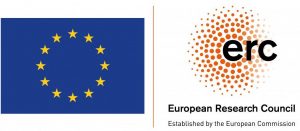
📢 DiCED Panel at APSA 2022
Our panel includes six papers, of which the provisional titles and proposed participants have been listed below:
- Contagion and Convergence in Election Campaigning in the Post-Pandemic Era? A Comparative Analysis on the U.S. 2020 Presidential and German 2021 Bundestag Elections.
- Authors: Rachel Gibson, Esmeralda Bon, Peter Smyth and Jahandar Musayev (University of Manchester, UK)
- Pandemic and partisanship: evaluating the effect of COVID-19 on patterns of political approval and voting decisions in the 2020 U.S. Presidential election.
- Authors: David Lazer (Northwestern University) Matt Baum (Harvard), Katya Ognyanova (Rutgers University and Jon Green (Northeastern University). USA
- How are voters persuaded? Combining Facebook and Survey panel data to unpack the effects of online political ads on party preferences in the 2021 Dutch General Election Campaign.
- Authors: Xiaotong Chu, Rens Vliegenthart, Lukas Otto, Claes de Vreese, Sanne Kruikemeier (University of Amsterdam) and Sophie Lecheler (University of Vienna).
- How the Pandemic was politicised on Twitter in the 2021 German Federal Election: the growth of Emotion and Personalisation in German Politics.
- Authors: Wiebke Drews and Jasmin Riedl (Universität der Bundeswehr München, Germany).
- Determinants of negative campaigning during pandemic times in Germany: Evidence from linked candidate surveys and social media data.
- Authors: Marius Sältzer (GESIS – Leibniz Institute for the Social Sciences) and Sebastian Stier (GESIS – Leibniz Institute for the Social Sciences), Jürgen Maier (University of Koblenz-Landau) & Corinna Oschatz (University of Amsterdam).
- How the Far-Right Polarises Twitter: ’Hashjacking’ as a Disinformation Strategy in Times of COVID-19 and the 2021 German Federal Elections.
- Authors: Philipp Darius, Centre for Digital Governance, Hertie School, Berlin, Fabian Stephany Oxford Internet Institute, University of Oxford and Humboldt Institute for Internet and Society, Berlin



0 Comments